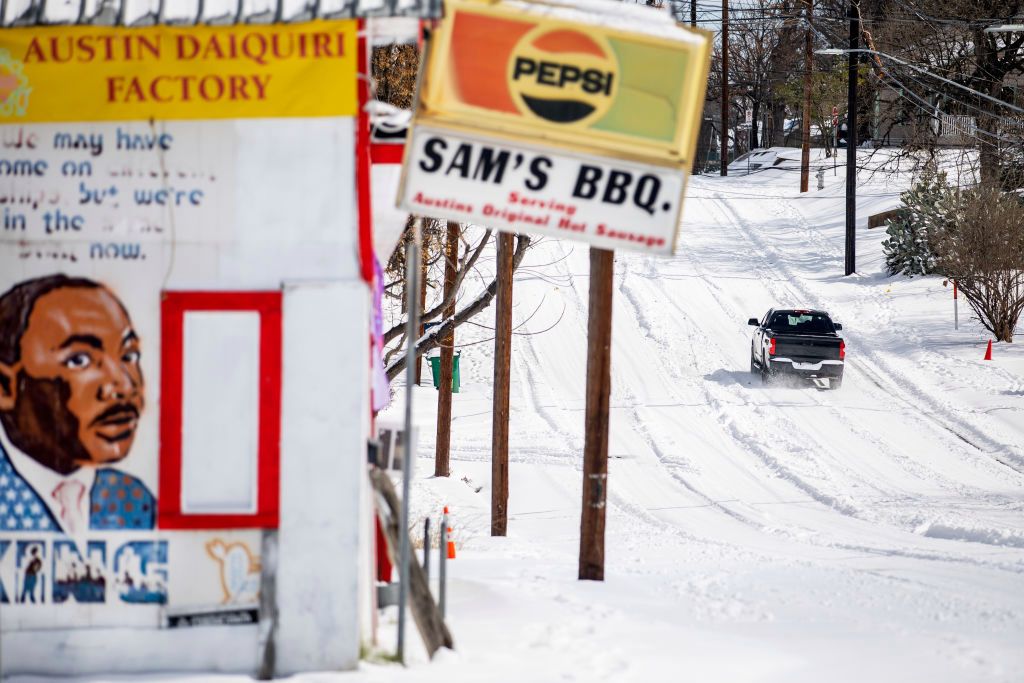Black Communities Hardest Hit While Weathering Winter Storms, Power Outages

Source: Montinique Monroe / Getty
As the pandemic continues to wage war on Black and brown communities, Mother Nature’s relentlessness adds an additional layer of concern as winter storms surge throughout the midwest and southwest.
In Texas around three million people have gone without power while officials issue storm warnings in the Dallas-Fort Worth areas until Thursday morning. Black and brown residents remain the hardest hit as a series of storms create arctic temperatures, in addition to the loss of heat and water. Officials estimate at least 30 people have died in the United States from the sudden turn in the weather.
“Whether it’s flooding from severe weather events like hurricanes or it’s something like this severe cold, the history of our response to disasters is that these communities are hit first and have to suffer the longest,” Robert Bullard, a professor at Texas Southern University told The New York Times.

Source: Montinique Monroe / Getty
“These are communities that have already been hit hardest with Covid,” he said. “They’re the households working two minimum wage jobs, the essential workers who don’t get paid if they don’t go to work.”
The reasons around the disproportionate suffering points to the conditions that Black communities are exposed to, including closer proximities to industrial sites exposing to higher instances of pollution, longer instances of response time to repair damages made by natural disasters and of course, lack of economic equity. Housing projects are usually the first to lose power and the last to see power restored. Areas with large homeless populations worry as shelters or safe havens like churches, are unable to service those in need due to power outages, lack of water and resources.
Some who are fortunate enough to have cars are turning to their vehicles for electrical power to keep their phones charged and of course for warmth.
Experts also warn that a lag in recovery time for Black populations could wear out longer due to the way Texas’ electricity market is set up, where prices can increase based on supply and demand.
While over 600,000 residents had their power restored over Wednesday night, officials warn the adverse conditions could go on into the rest of the week.
SEE ALSO:
The Ku Klux Klan Act of 1871 Explained As NAACP Sues Trump, Proud Boys For Violating It
HBCU Professor Accused Of Trivializing Trayvon Martin’s Death With ‘Hoodie’ And ‘Skittles’ Quip
[ione_media_gallery id=”4072430″ overlay=”true”]

